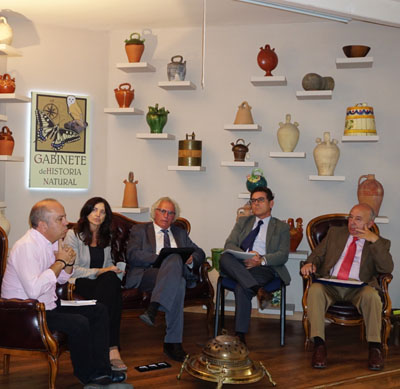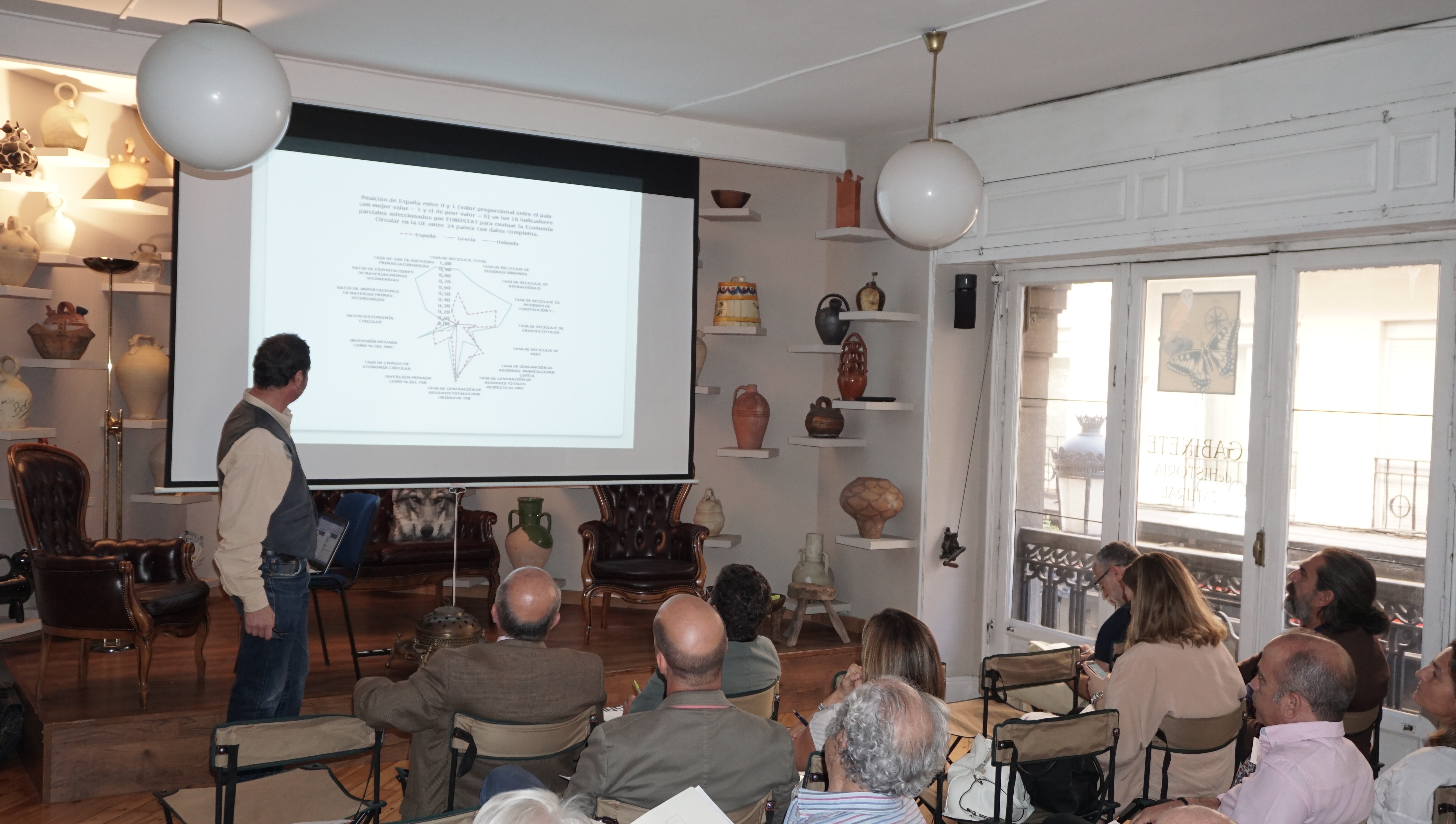49. Cabecera noticia anuario Observatorio Sostenibilidad
SIGAUS participates in the debate during the presentation of the 1st Annual Report on Circular Economy in Spain
The Sustainability Observatory has presented the 1st Annual Report on Circular Economy in Spain 2018 in Madrid, with the objective of undertaking a detailed evaluation of the status and evolution of this new economic paradigm in Spain with regards to the rest of the EU. In an event celebrated in the headquarters of the Natural History Bureau, the attendees, including the Director of Institutional Relations and Communications at SIGAUS, Fermín Martínez de Hurtado, made the case for greater availability and harmonisation of data and definitions, a certification for the companies that implement Circular Economy processes.
03-10-2018

24. Párrafo noticia anuario GHN
The document, presented under the framework of the Permanent Forum on Circular Economy in the Natural History Bureau, is based on an analysis carried out using quantitative markers related to this economic model such as waste management, production and consumption fees or the market of reusable raw materials.
In the words of the representatives of the technical team at the Sustainability Observatory, Carlos Alfonso and Fernando Prieto, this work has been carried out with the objective of informing the public in general, but also of helping political leaders and business sectors to make decisions for the transition towards a Circular Economy.
“The topic is extraordinarily complex”, they explained, however, “it presents numerous opportunities, therefore the need for greater understanding and for staying up-to-date on the transition towards an economy that leads to economic, social and environmentally sustainable development in the European Union seems evident.”
Preserving global resources
According to the Annual Report, and with the objective of preserving global resources, creating employment and generating competitive advantages, the Circular Economy “aims to close the material cycles of the economy and to minimise its use, the use of soil, the changed use of the land, the use of water, of energy, of greenhouse gas emissions and other emissions, the effects on biodiversity and the production of waste”.
“The Circular Economy is the next great evolution, but it must always be based on data and sincerity. On data for science and for awareness”, stated the Director of the Natural History Bureau, Luis Miguel Domínguez.
32. Destacado noticia anuario GHN
“
This work has been carried out with the objective of informing the general public, and also of helping policy makers and business sectors to make decisions for the transition to a Circular Economy.
„
During the debate celebrated after the presentation of the Annual Report, Alfredo Aranda, Head of Economy at the Forbes Magazine, recalled the importance of the “eco” dimension and the fact that the Circular Economy “introduces ethical values and affects all sectors in a transversal manner”.
In the words of the Regional Coordinator for Local Action of the Regional Government of Extremadura, Santos Jorna, this Autonomous Region focuses on the Circular Economy because it is “an opportunity for the region”. However, he highlighted that this model must always be “taken seriously”, because otherwise “it will just be a superficial wash of the usual economic model”.
To stop this from happening, Jorna focuses on motivating companies so that they see the advantages of this new model with both positive and negative taxation. “The Administration must show the way with measures such as green public purchases and the promotion of R&D, as well as aid linked to the Circular Economy”, he added.
For his part, the representative of SIGAUS, Fermín Martínez de Hurtado, agreed that tax policies would help to give a definitive boost to this new model and to the importance of green purchases and greater fraud control. To this, the definitive focus on prevention and research would be added, as is already occurring in the lubricants sector. “Sometimes, companies are circular without even knowing”, he stated.
24. 2º párrafo noticia anuario GHN
Román Martín, Director of Institutional Relations at SIGNUS, made a similar statement, making the case for a more stable and integral regulation and for promoting control and supervision measures, regulating the End of Waste Condition. The importance of education to achieve suitable application of the Circular Economy is another of the keys which were debated at the round table, as highlighted by the Strategy Manager at ECOEMBES, Silvia Ayerbe.
Spain must continue to improve
The main conclusions of the report indicate that Spain presents a deficient position in the general quantitative evaluation based on the 16 markers selected by EUROSTAT to measure the Circular Economy. Specifically, it holds the 10th place in the ranking of the EU-15 (the document includes the full data of 13 countries) and the 14th place out of 24 countries in the EU regarding these markers.
With regards to the management of municipal waste, Spain is among the lowest ranks of the EU-15 in overall recycling (only ahead of Greece), with 29.7% in 2016 and having decreased 10 points since 2008. However, with regards to the recycling rate for packaging waste (which already reaches 70.3%), Spain has exceeded the goal set by the EU for 2030, of 70%.
In the case of the use of secondary raw materials and recycled materials and the demand and trade, Spain is positioned in 16th place out of 24 countries with full data and 3.7 percentage points below the European average.
For employment related to the Circular Economy, the document shows that Spain occupies a strong position, in second place, only behind Italy, however in private investment it is holds the 5th lowest position out of the EU-28.
